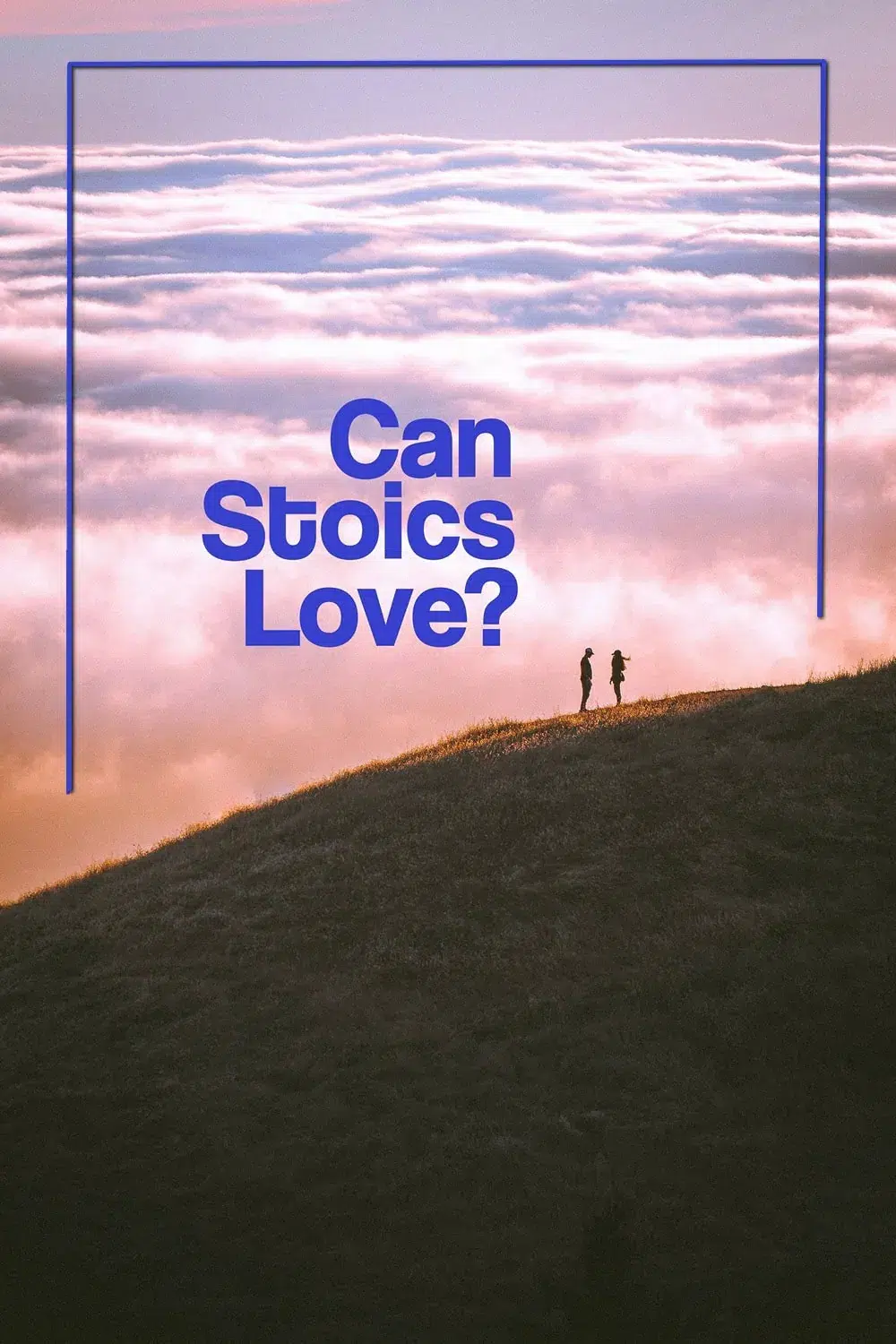Today's Saturday • 10 mins read
— By Dr. Sandip Roy.
Many think Stoics are square-jawed men who can’t fall in love.
That’s wrong. Stoics can love. In fact, they can express not just love but the full range of emotions: happiness, sadness, anger, fear, surprise, and disgust.
For the Stoics, love is an essential part of eudaimonic life—a life that is meaningful and virtuous, free from greed and passion.
What they find pointless is wasting energy on desiring love from someone who does not love humanity.
Stoicism And Love: What Love Means To A Stoic
A Stoic accepts and embraces the impermanence of all they love. So when their loved ones die or go away, rather than grieve their absence, they revel in the togetherness they had with them. Stoic love is also not about getting overwhelmed or consumed, despite being honest with one’s tender feelings toward those one loves.
“Love is not about possession, love is about appreciation.”
— Marcus Aurelius
The Stoic way to love is:
- To love in an honest and realistic way
- To love remembering that their loved one may die
- To love, keeping in mind their own and their lover’s virtue
- To love remembering the impermanence of the relationship
- To love being tolerant of their lack of control over the relationships themselves

Can Stoics Love?
Yes, Stoics can love and fall in love. To them, love is a strong form of friendship with a romantic component, but without abandoning logic or virtue.
Stoics value their loved ones and are concerned with their well-being and prosperity. They help their partner to live a better life and inspire them to a more virtuous existence.
People usually accuse Stoics of suppressing their emotions, including love. So much so that Stoicism has become clumsily associated with a life without passions or emotions. When someone says “Stoic” today, they might well point at someone who is emotionally flat.
But that idea is plain wrong. Stoic masters Marcus Aurelius, Musonius Rufus, and Seneca were all deeply in love with their wives.
In the first chapter of his book Meditations, Marcus Aurelius (121 – 180 CE) describes the Stoic ideal as being free of passion and still, being full of love.
“Not to display anger or other emotions. To be free of passion and yet full of love.”
— Marcus Aurelius, Meditations, 1.9 (Gregory Hays trans.)
Seneca reminded us that we do not own the people we love. The universe has just given them to us. And it can take what it lent at any time.
So, it is not a taking way, but a returning to the universe.
Seneca asks to turn to the memory of love to move through grief when a loved one dies. He tells a bereaved mother that it is a terrible choice not to consider the entirety of her son’s life, and focus only on the tragic ending:
“You pay no attention to the pleasure you have had in your son’s society and your joyful meetings with him, the sweet caresses of his babyhood, the progress of his education: you fix all your attention upon that last scene of all.”
And Epictetus, the great Stoic sage, said;
Let no man think that he is loved by any who loveth none.
— Epictetus, Stoic Sage

Stoic Love And Beauty
The Stoic sage must not, at least according to Arius, desire a person only for their outward appearance.
For a Stoic’s love and desire, it is the character, personality, and moral righteousness that provide the fuel for maintaining rational and loving relationships.
So, in marriage, there must be, above all, perfect companionship and mutual love – both in sickness, health and under all conditions-it should be with desire for this (and children) that both entered upon marriage.” ― Musonius Rufus
Physical attractiveness as the starting point may be excused, as it is often the spark that kindles the flame of love.
However, erotic love, the tendency to form bonds that arise from an impression of beauty, is not the definition from which many Stoics emerge.
Stoicism And Physical Love
When the Roman Stoics spoke of Cupid, whom the Greek Stoics called Eros, they did not speak of the kind of romantic love found in the works of the elegiac poet Sappho.
They did not recommend clinging to the indulgence of lust.
Love (amor) does not fit with passion (eupatheiai), which seems to be a bit in between.
They do not recommend clinging to the indulgence of lust. Seneca notes “the abandoned belly of lust bears the stain of shame,” and thinks people who are angry, greedy, and violent are the least of the sins of male fashion.
That does not mean Stoics should not feel pleasure.
The pleasure of physical intimacy is considered the preferred cardinal Stoic Virtue of Moderation, not an indifferent one, unlike lustful pleasure.
Stoic Love And Moral Virtue
The key to cultivating “living with virtue” is to develop one’s own moral character and abilities, which make a person desirable from a Stoic point of view.
It brings a person a step closer to developing the virtues of Prudence and Justice in their life.
Seneca respects love and meaningful relationships with other people.
If you live a good life according to Stoic standards, you will in most cases find an attractive partner and build a lasting relationship.
The classical Stoics regarded romantic and erotic love, at least sometimes, as a feeling that people were good and valuable.
If someone is incapable of distinguishing good things from bad and neutral things from either – well, how could such a person be capable of love? The power to love, then, belongs only to the wise man. ― Epictetus (Discourses II.108)
Once we look beyond the “almost necessary” conditions of irrationality that come with powerful biological feelings, we become a little more rational in loving others, and our lives become more shareable and manageable.
Love doesn’t need owning the lover or gaining their intimacy, but it does need moral excellence.
Stoicism And Unrequited Love
Unrequited or unreciprocated love is an absurdity from the Stoic point of view.
Stoics do not try to force or trick someone into having a romantic relationship with them. They are well aware that forced love is spiritless love.
Nor do they continue to pine for someone who would never love them. They realize that one-sided love is a loss of effort and passion.
Stoic love is tempered by an awareness of probable loss, potential betrayal, and the truth that our own feelings change over time.
Maintaining love beyond the initial rush of hormones means having a solid relationship based on trust, compassion, and friendship.
It means one must be careful when committing. Once we have committed to someone, we have to respect it.
They love with full knowledge they may lose their loved ones any day, so they ritually practice memento mori.
Stoicism And Loss of Love
The truth is, there is no guarantee that any love will last a lifetime, a fact the Stoics know well and accept fully.
So, they feel it might be unwise to commit one’s love to a relationship for permanence.
To even promise to return to their love after a certain period is a false promise.
To think of it, how can a warrior promise he shall return to his family after the battle?
The uncontrolled feelings of falling in love are not much different in Stoics than anyone else’s feelings of falling in love.
But lovers come with virtues, and even when flowing in the rivers of “mad love,” the Stoics respect those virtues of others.
They are careful about not trodding upon the virtue rights of their lovers.
“Accept the things to which fate binds you, and love the people with whom fate brings you together, but do so with all your heart.” — Marcus Aurelius
Stoicism And Sufferings of Love
Love can be painful, especially when love is lost to the hands of fate.
A loss to fate might come as a loss of life, disillusionment in the relationship, or the finding of a better person.
On this, Maria Popova writes, “To retain the memory of love’s sweetness without letting the pain of parting and loss embitter it is perhaps the greatest challenge for the bereaved heart, and its greatest achievement.”
Epictetus (55 – 135 CE) offered the Stoics a solution to deal with the pain of separation from a loved one:
When you are delighted with anything, be delighted as with a thing which is not one of those which cannot be taken away, but as something of such a kind, as an earthen pot is, or a glass cup, that, when it has been broken, you may remember what it was and may not be troubled…
What you love is nothing of your own: it has been given to you for the present, not that it should not be taken from you, nor has it been given to you for all time, but as a fig is given to you or a bunch of grapes at the appointed season of the year.
But if you wish for these things in winter, you are a fool. So if you wish for your son or friend when it is not allowed to you, you must know that you are wishing for a fig in winter.
Whether one experiences an endless streak of bad luck, or whether other people are rude, is irrelevant to a Stoic.
As long as a Stoic reacts virtuously, they know they are living a good life.
When they think well of themselves, and think and act on things that are in their control, they never feel the need to worry about the effects of external events that are beyond their control.
Stoics acknowledge that people cannot control much of what happens in life.
Still, many worry about things beyond our control.
The Stoics feel we should use our energy to find creative solutions to problems, not spend it overthinking the problems themselves.
They emphasize that it is unproductive and irrational to worry about things that are beyond our control, especially when a person’s mind would do better with rest.
Epictetus repeatedly reminded his followers to learn to distinguish between the controllable and the uncontrollable and not waste any energy on the uncontrollable events.
A better way to look at it is that we are all capable of a wide spectrum of emotions, from unhealthy ones like anger, fear, jealousy, and hatred to healthy ones like joy, love, gratitude, and justice.
To a Stoic, cultivating feelings of joy and justice, being happy, and having wonderful friends and lovers, makes sense.
- For a Stoic, earning the love of a virtuous person is more important than winning the love of a beautiful person, because beauty does not guarantee good morality.
- More importantly, a Stoic will have no reason to rejoice if they win a lottery by marrying rich because money and wealth are “preferred indifferents.”
Money does not make you kinder or nicer than you were before money came into your life.
Final Words
That Stoics know how to feel and express joy, and that they sometimes describe their philosophy as one of love, should give pause to those who repeat the stereotype of the Stoic as Mr. Spock.
Pop culture wrongly shows them as people who resist falling in love, afraid that expressing soft emotions will contradict their ideology of remaining stoic (with a small “s” meaning emotionless).
To begin, all of the following statements are correct:
- Women can be Stoics.
- Stoics are not emotionless.
- Stoicism is not incompatible with love.
The Stoics see themselves as advocates of a kind of affection for the rest of humanity, connected with what one might call a philanthropic and cosmopolitan attitude.
• • •
√ Also Read:
√ Please spread the word if you found this helpful.
• Our Story!

